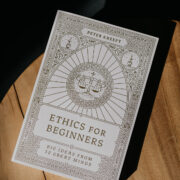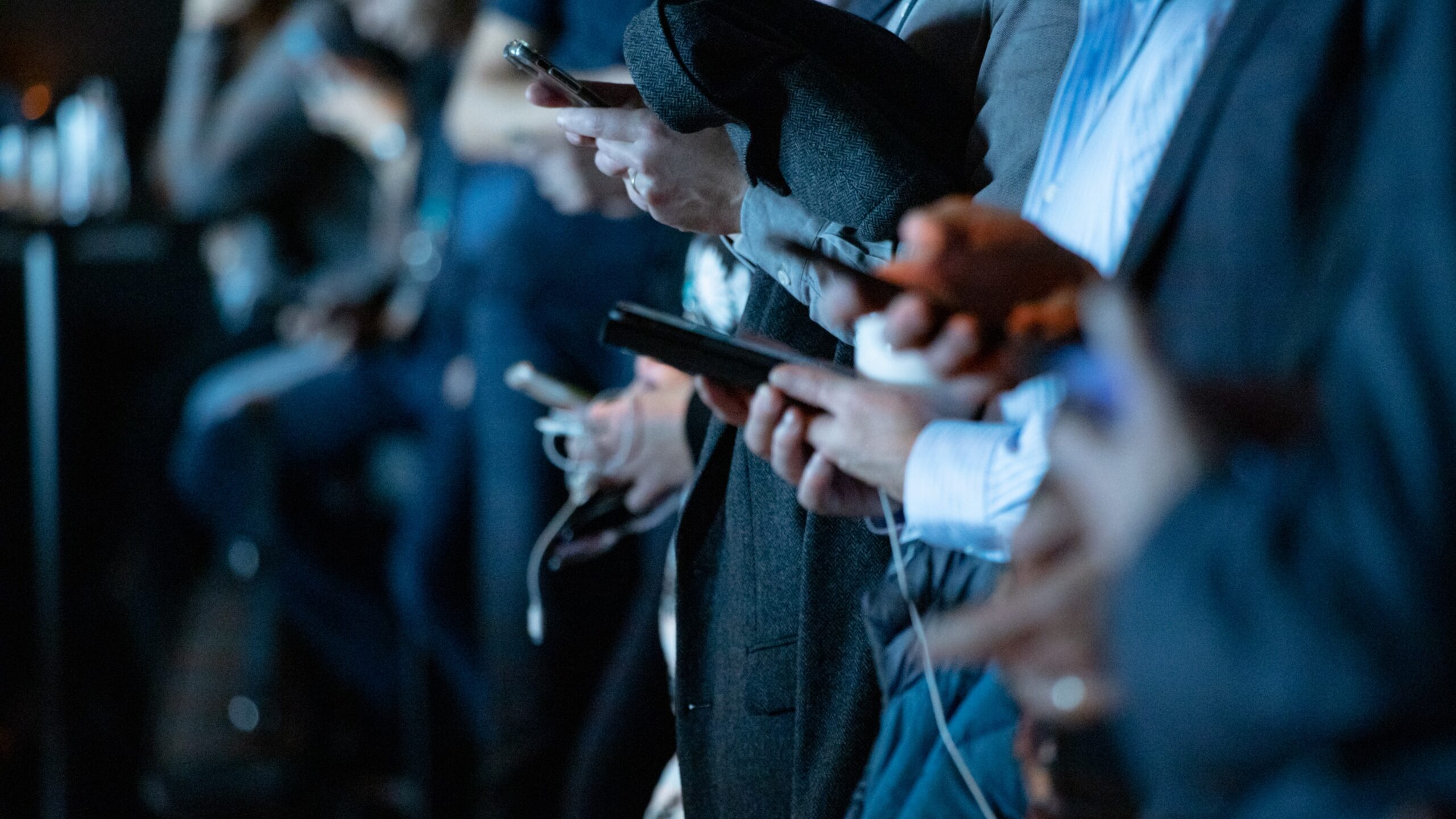Fasting is an art ordered to the cultivation of attention to God. Such a spiritual practice cannot be done just anywhere but in a place free of distractions—a place like a desert. The Gospels often depict Jesus going into the desert or up the mountain to be alone with the Father and pray. As the perfection of attention, prayer is attention to the presence of God. When he commanded his disciples to go into a room, close the door, and pray to the Father (Matthew 6:6), Jesus was primarily warning his disciples not to be like those who put on a public demonstration of their prayer. We can also read his command as a good way of being free of distraction. But how many of us go in our room and close the door to pray while clinging to our smartphones?
As I write this, I feel the hold my smartphone has on me. I can almost hear it call me by name: “Bobby, Bobby, attend to me. Here I am.” Tired of consciously resisting its pull, I automatically check a couple of social media sites, doomscroll, and text twenty friends without even realizing what I am doing—because dopamine feels good. My wife sees the hold my smartphone has on me, and sometimes she will hide it on me after I get home from work. Yet I am okay and do not throw myself on the floor, screaming like a punished child, because I get the same dopamine hit by getting on the computer or taking out the tablet.
These devices have not improved my relationships anywhere, but they have helped to damage my relationships with people at hand. They have made a disciplined prayer life all but impossible, and the joy they have promised has come up short. I need a dopamine fast.
The Wall Street Journal had an interesting essay by Stanford psychiatrist and professor Dr. Anna Lembke entitled “Digital Addictions Are Drowning Us in Dopamine” in which she tells the story of one of her patients, a young man in his early 20s struggling with debilitating anxiety and depression. He had recently dropped out of college, was living with his parents, and was contemplating suicide, but Dr. Lembke highlights that he was playing video games most of the day and late into the night, which played a big role in his depression.
Our addiction is making our lives worse. We are slaves of the screen.
Instead of giving him antidepressants, she suggested he abstain from all screens, especially video games, for one month. She called this “a dopamine fast.”
While we are more than our brains, there is a lot we can appreciate in the latest findings in neuroscience, particularly its conclusions about screen addiction and dopamine. Dr. Lembke’s new book, Dopamine Nation, will hopefully be a valuable resource on why we should all try to put away our devices and, like her patient, go on a dopamine fast.
Dopamine is a neurotransmitter that makes us feel good, but too much dopamine offsets the homeostasis of the brain. An endless cycle of seeking dopamine kicks in, upping the need for more intense hits just to fight the offsetting pain. In the process, the brain becomes rewired to require such hits. This habit becomes an addiction, and we become beholden to our devices. Hence, my irritability when I don’t have access to my digital dopamine-delivering devices.
After the dopamine fast, Dr. Lembke’s patient was able to successfully return to his beloved devices but within set boundaries. Dr. Lembke concludes that everyone should try a dopamine fast, particularly by abstaining from our smartphones and setting up certain limits of use in order to stave off continued addiction.
Her advice works just as well for cultivating the attention necessary for prayer.
Dr. Lembke’s essay resonates in many ways with the work of philosopher-mechanic Matthew B. Crawford. In his book The World Beyond Your Head, Crawford looks at the numerous ways our artificial environments are engineered for distraction, thus making unmediated thinking and reflection nearly impossible. He calls this “a crisis of attention.” Throughout the book, he argues that the “self” is shaped by its environment in numerous ways, making the picture of the world in which the autonomous self lives less representative of reality. Crawford argues that, because we are shaped in countless ways by the design within our everyday lives, we would become more virtuous, attentive individuals if we played a bigger role in the design of the everyday.
As examples of those who have channeled their attention in productive ways, Crawford interviews various craftsmen who he sees as more attuned to reality because of the attention and care their craft demands. One of his insights is relevant to fasting and spiritual discipline. It is the concept of the “jig,” which he takes from carpentry. Crawford says a jig is “a device or procedure that guides a repeated action by constraining the environment in such a way as to make the action go smoothly, the same each time, without his having to think about it.”

A jig is perhaps useful in the spiritual life as well. Just as carpenters need to put in place boundaries and limitations to freedom within which they can more attentively do their work, so do those of us who are mindful of our spiritual work. By jigging our environment, we can keep attention properly directed and our prayer lives strong.
So what are the jigs you can put in place when getting ready for a dopamine fast or our prayer enhancement? Look around your home; what consistently distracts you? Do you need someone to hide your mobile phone or other digital devices for a number of days? Perhaps you can go old school and replace your smartphone with a stupid one for a little while. There are countless ways of jigging your environment so as to not only better attend to the world, self, and friends, but, in everything, God.
Let’s face it: most of us are addicted to our devices, and we are in need of a dopamine fast. Our addiction is making our lives worse. We are slaves of the screen. Like Israel held captive in Egypt, ask the Lord God for freedom from the oppression of the dopamine hit. Go on a dopamine fast. But get ready: such a fast will take you out to the desert where you’ll be craving the food of Egypt (Numbers 11:5). Just remember that the desert is not the end but a highway to the land of salvation; the land of freedom—even freedom from the screen. Only then will we be properly disposed to listen to God.
